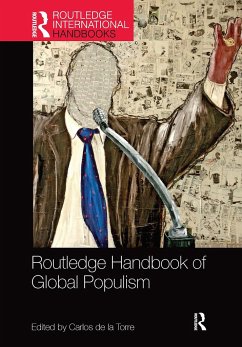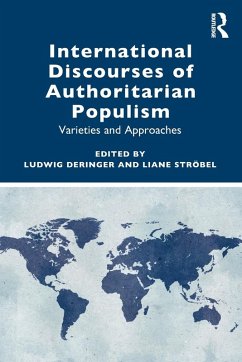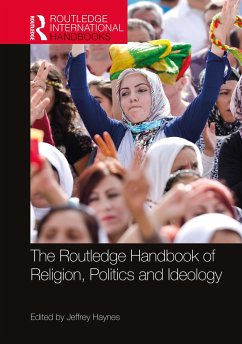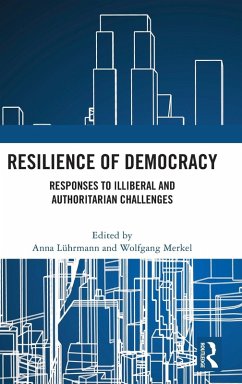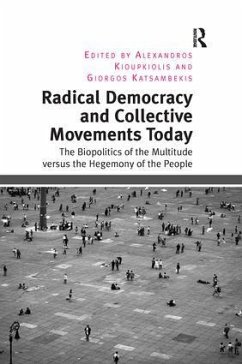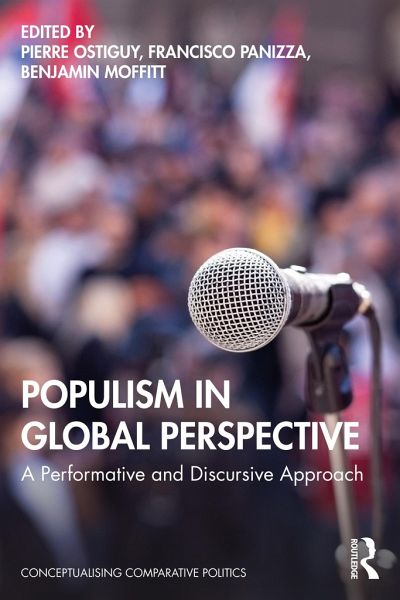
Populism in Global Perspective
A Performative and Discursive Approach
Herausgegeben: Ostiguy, Pierre; Panizza, Francisco; Moffitt, Benjamin

PAYBACK Punkte
22 °P sammeln!
Pathbreaking theoretically and innovative in treatment, Populism in Global Perspective is a seminal addition to the literature on arguably the most controversial and fervently discussed topic in political science today.The book brings together established and rising stars in the field of populism studies, in an integrated set of theoretical and empirical studies centered on a discursive-performative notion of populism. Contributors argue that populist identification is relational and sociocultural, and demonstrate the importance of studying populism phenomenologically together with anti-populi...
Pathbreaking theoretically and innovative in treatment, Populism in Global Perspective is a seminal addition to the literature on arguably the most controversial and fervently discussed topic in political science today.
The book brings together established and rising stars in the field of populism studies, in an integrated set of theoretical and empirical studies centered on a discursive-performative notion of populism. Contributors argue that populist identification is relational and sociocultural, and demonstrate the importance of studying populism phenomenologically together with anti-populism. The truly global series of case studies of populism in the US, Western and Southern Europe, Latin America, South Africa, the Philippines, and Turkey achieves a deliberate balance of left and right instances of populism, including within regions, and of populism in government and opposition.
Written in a style approachable to students and specialists alike, the volume provides a substantial foundation for current knowledge on the topic. Populism in Global Perspective is a must read for comparativists, political theorists, sociologists, area studies specialists, and all educated readers interested in populism worldwide.
The book brings together established and rising stars in the field of populism studies, in an integrated set of theoretical and empirical studies centered on a discursive-performative notion of populism. Contributors argue that populist identification is relational and sociocultural, and demonstrate the importance of studying populism phenomenologically together with anti-populism. The truly global series of case studies of populism in the US, Western and Southern Europe, Latin America, South Africa, the Philippines, and Turkey achieves a deliberate balance of left and right instances of populism, including within regions, and of populism in government and opposition.
Written in a style approachable to students and specialists alike, the volume provides a substantial foundation for current knowledge on the topic. Populism in Global Perspective is a must read for comparativists, political theorists, sociologists, area studies specialists, and all educated readers interested in populism worldwide.






